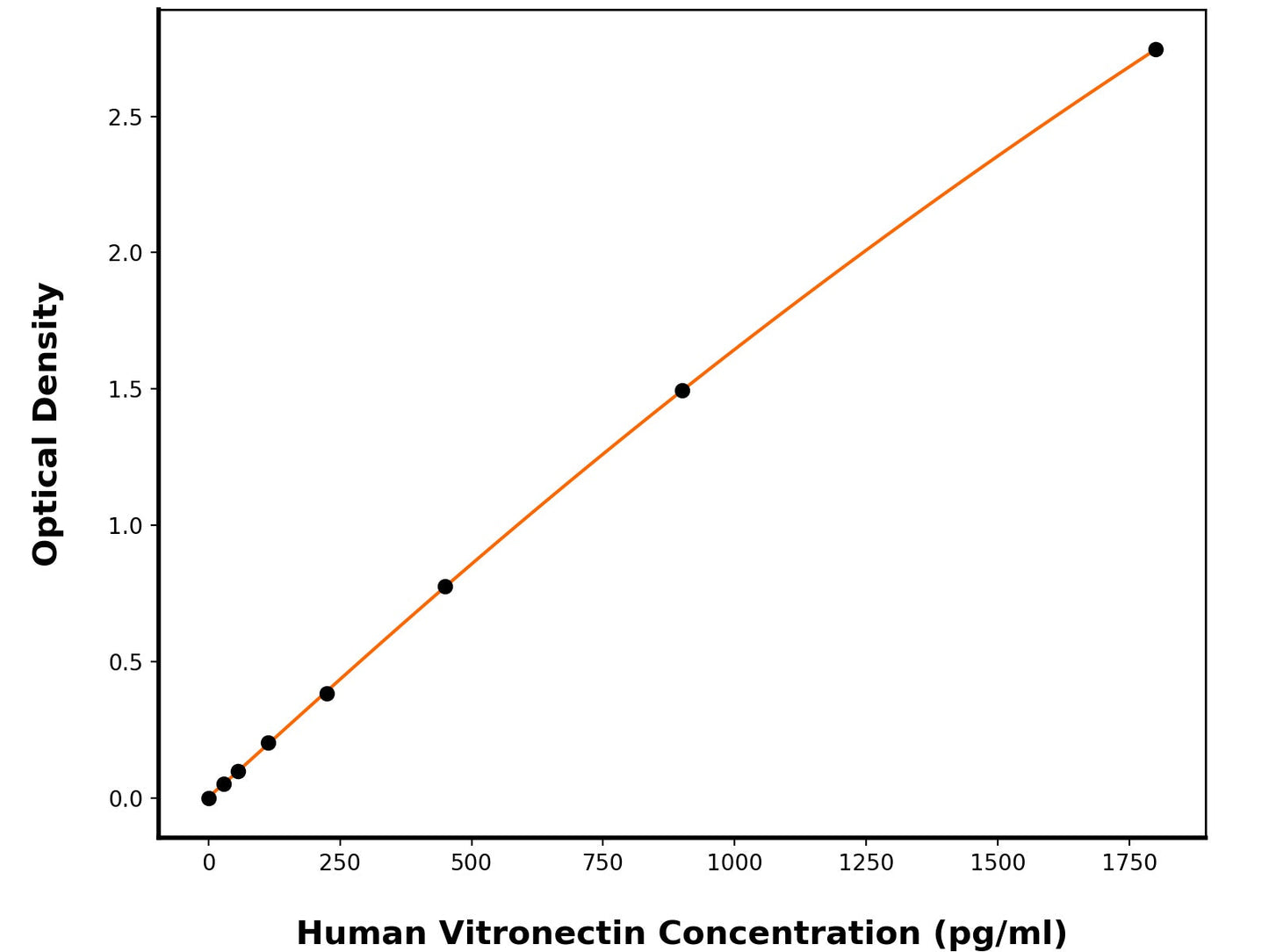1
/
of
1
Human Vitronectin (VTN) ELISA Kit
Human Vitronectin (VTN) ELISA Kit
This ELISA kit is designed to detect Human Vitronectin (Human VTN). The assay plate has been pre-coated with mouse anti-Human Vitronectin monoclonal antibody. When the sample containing Vitronectin is added to the plate, it binds to the antibodies coated on the wells. Then, a horseradish peroxidase conjugated mouse anti-Human Vitronectin Antibody is added to the wells and binds to Vitronectin in the sample. After washing the wells, substrate solutions are added, and the color intensity is directly proportional to the amount of Human Vitronectin present. The reaction is stopped by adding an acidic stop solution, and the absorbance is measured at 450 nm.
Catalog No:
BPE081
Regular price
$754.00 USD
Regular price
$580.00 USD
Sale price
$754.00 USD
Unit price
/
per
2 weeks
Couldn't load pickup availability
Product Details
Species Reactivity
Human
Sensitivity
6.29 pg/mL
Detection Range
28.13-1800 pg/mL
Sample Type
Serum, plasma, cell culture supernates
Incubation(s)
3.5 hour(s)
Research Areas
Cardiovascular, Immunology
Background
Vitronectin, also known as VTN, is a member of the pexin family. It is an abundant glycoprotein found in serum the extracellular matrix and promotes cell adhesion and spreading. Vitronectin is a secreted protein and exists in either a single chain form or a cleaved, two chain form held together by a disulfide bond. Vitronectin is a plasma glycoprotein implicated as a regulator of diverse physiological process, including blood coagulation, fibrinolysis, pericellular proteolysis, complement dependent immune responses, and cell attachment and spreading. Because of its ability to bind platelet glycoproteins and mediate platelet adhesion and aggregation at sites of vascular injury, vitronectin has become an important mediator in the pathogenesis of coronary atherosclerosis. As a multifunctional protein with a multiple binding domain, Vitronectin interacts with a variety of plasma and cell proteins. Vitronectin binds multiple ligands, including the soluble vitronectin receptor. It may be an independent predictor of adverse cardiovascular outcomes following acute stenting. Accordingly, Vitronectin is suggested to be involved in hemostasis, cell migration, as well as tumor malignancy.
Shipping Condition
Shipped on cold gel packs.
Storage Condition and Shelf Life
This product can be stored at 2-8C.
Analyte
Vitronectin
Regulatory Status
For Research Use Only

